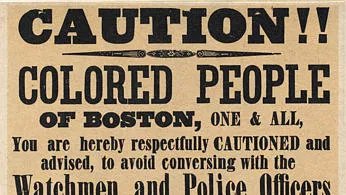
At President Grant’s urging, Congress passed the Ku Klux Klan Act - this day in 1871. The KKK Act allowed the president to use federal troops and suspend the writ of habeas corpus to ensure that civil rights were upheld 

President McKinley asked Congress to declare war on Spain - this day in 1898 - two months after the U.S.S. Maine blew up in Havana harbor. “Remember the Maine!” was the battle cry as America went to war with Spain. But... (more) 

2/
the navy later determined that an on-board accident, not a Spanish attack, blew up the battleship. The Spanish-American war was fueled by sensationalist newspaper coverage from tycoons like William Randolph Hearst and Joseph Pulitzer. A term was born: yellow journalism (more)
the navy later determined that an on-board accident, not a Spanish attack, blew up the battleship. The Spanish-American war was fueled by sensationalist newspaper coverage from tycoons like William Randolph Hearst and Joseph Pulitzer. A term was born: yellow journalism (more)
3/
"Yellow journalism," as practiced by Hearst and Pulitzer, meant an emphasis on scandals, exaggerations and stirring up of drama (it's certainly a good thing that this doesn't exist today)
"Yellow journalism," as practiced by Hearst and Pulitzer, meant an emphasis on scandals, exaggerations and stirring up of drama (it's certainly a good thing that this doesn't exist today)

President Reagan agreed to raise payroll taxes this day in 1983 - when he signed a $165 billion Social Security bailout bill 

This Day, 1999:
President Clinton said he was “profoundly shocked and saddened” by a massacre at Colorado’s Columbine HS. Thirteen people were murdered (the two killers, both students, committed suicide). The killings shocked Americans, sparking calls for stricter gun laws (more)
President Clinton said he was “profoundly shocked and saddened” by a massacre at Colorado’s Columbine HS. Thirteen people were murdered (the two killers, both students, committed suicide). The killings shocked Americans, sparking calls for stricter gun laws (more)

2/
After the Columbine massacre, calls for tighter gun control were met with calls by gun rights activists who said it wasn't the right time to discuss such things. This line has been repeated countless times over the past 22 years
After the Columbine massacre, calls for tighter gun control were met with calls by gun rights activists who said it wasn't the right time to discuss such things. This line has been repeated countless times over the past 22 years
• • •
Missing some Tweet in this thread? You can try to
force a refresh















